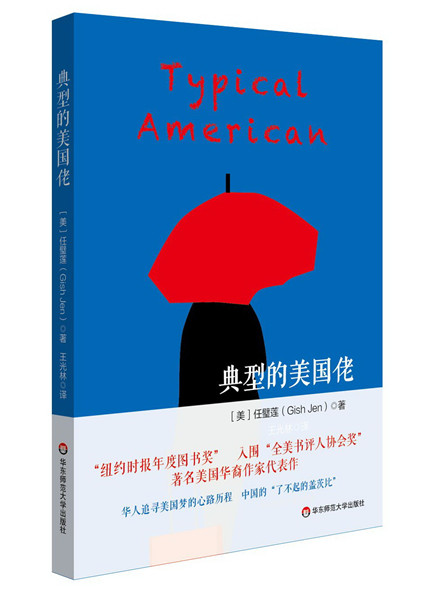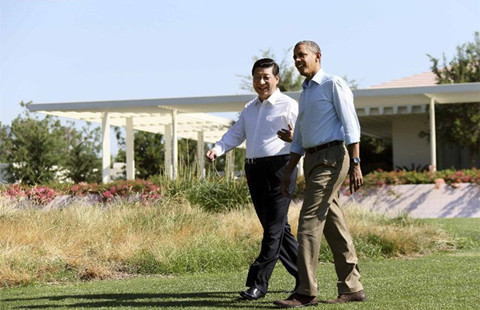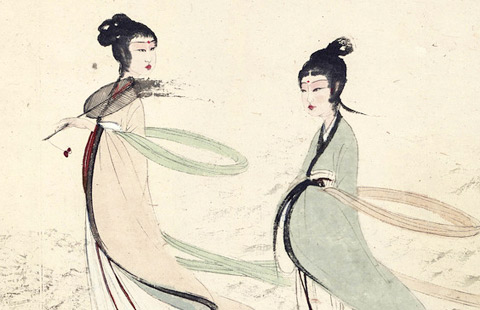A 'typical American' who wants to provoke conversation
Updated: 2015-09-16 07:52
By Yang Yang(China Daily)
|
||||||||
 |
|
The Chinese edition of Gish Jen's Typical American. [Photo provided to China Daily] |
The act of writing is a powerful force, both for the writer and for the world, says the American writer Gish Jen. For her, writing is "steadying" and is "a rich source of joy and satisfaction" that gives her peace, she says.
"Writing makes me a very strong person."
Jen was speaking in Shanghai recently, following the publication last month of the second Chinese edition of her first novel, Typical American, and the publication in Chinese of her collection of stories Who Is Irish?
About 15 years ago the writer John Updike praised her works and critics say both writers describe the core problems of US society, American identity and the American dream, in a broader sense than from the perspective of ethnic groups.
Her short story Birthmates in Who Is Irish? was included in the Best American Short Stories of the Century that Updike edited in 1995.
On a social level, a novel's job is to raise questions, she says, and by talking to readers about problems in language that they can understand, it can bring clarity not only to her, but also to society, she says.
Jen was born to a Chinese American couple in Long Island, New York, in 1955. Her parents went to the United States in the 1940s. Her father was sent by the Nationalist government to the US as a hydraulic engineer to work for China during World War II. Her mother went to the country to study education, hoping eventually to return to China to help with its education. But when China's civil war ended they both stayed in the US.
After she graduated from Harvard University with a bachelor of arts in English, and even though her professors had said she should be a writer, she went to Stanford Business School as a "safe try" for her career.
However, she was unhappy with those studies and dropped out, she says, and then attended the University of Iowa Writers' Workshop. In 1983 she gained a master of fine arts in fiction.
It was not until 1978 that Jen first came to China, with her parents to meet their relatives. Two years later she returned to teach English at a school in Shandong province, and stayed for six months, an experience that she says proved invaluable.
Then for the first time she was widely exposed to the Chinese language, which her parents spoke at home but forbade their five children speaking for fear it would undermine their efforts to speak flawless, accent-less English.
- UN chief: Those blocking fleeing refugees should 'stand in their shoes'
- Hungarian riot police detain migrants
- IOC announces five cities bid for 2024 summer Olympic
- Japan opposition to halt vote on security bills
- Japan protesters rally as security bills near passage
- Australia launches first air strikes against IS

 Four major meetings between Xi and Obama since 2013
Four major meetings between Xi and Obama since 2013
 Ice cube bath sets world record
Ice cube bath sets world record
 Chinese noncommercial ads to be displayed in the US
Chinese noncommercial ads to be displayed in the US
 Eight-ton tofu served in East China
Eight-ton tofu served in East China
 Top 10 things China makes most of in the world
Top 10 things China makes most of in the world
 Man tries to sell kidney for iPhone 6s
Man tries to sell kidney for iPhone 6s
 Gems of Chinese painting at Sotheby's HK auction
Gems of Chinese painting at Sotheby's HK auction
 NYFW: Tommy Hilfiger Spring/Summer 2016 collection
NYFW: Tommy Hilfiger Spring/Summer 2016 collection
Most Viewed
Editor's Picks

|

|

|

|

|

|
Today's Top News
Xi to press case for China-US Bilateral Investment Treaty
Australian father takes on drug dealers
Senior securities official under investigation
Sequel of Crouching Tiger's underway but without Ang Lee
Action on climate heats up in LA
Fire traps more than 100 kids in East China building block
President Xi to visit US and attend UN summit in late September
2015 US-China Climate Leaders Summit kicks off
US Weekly

|

|







